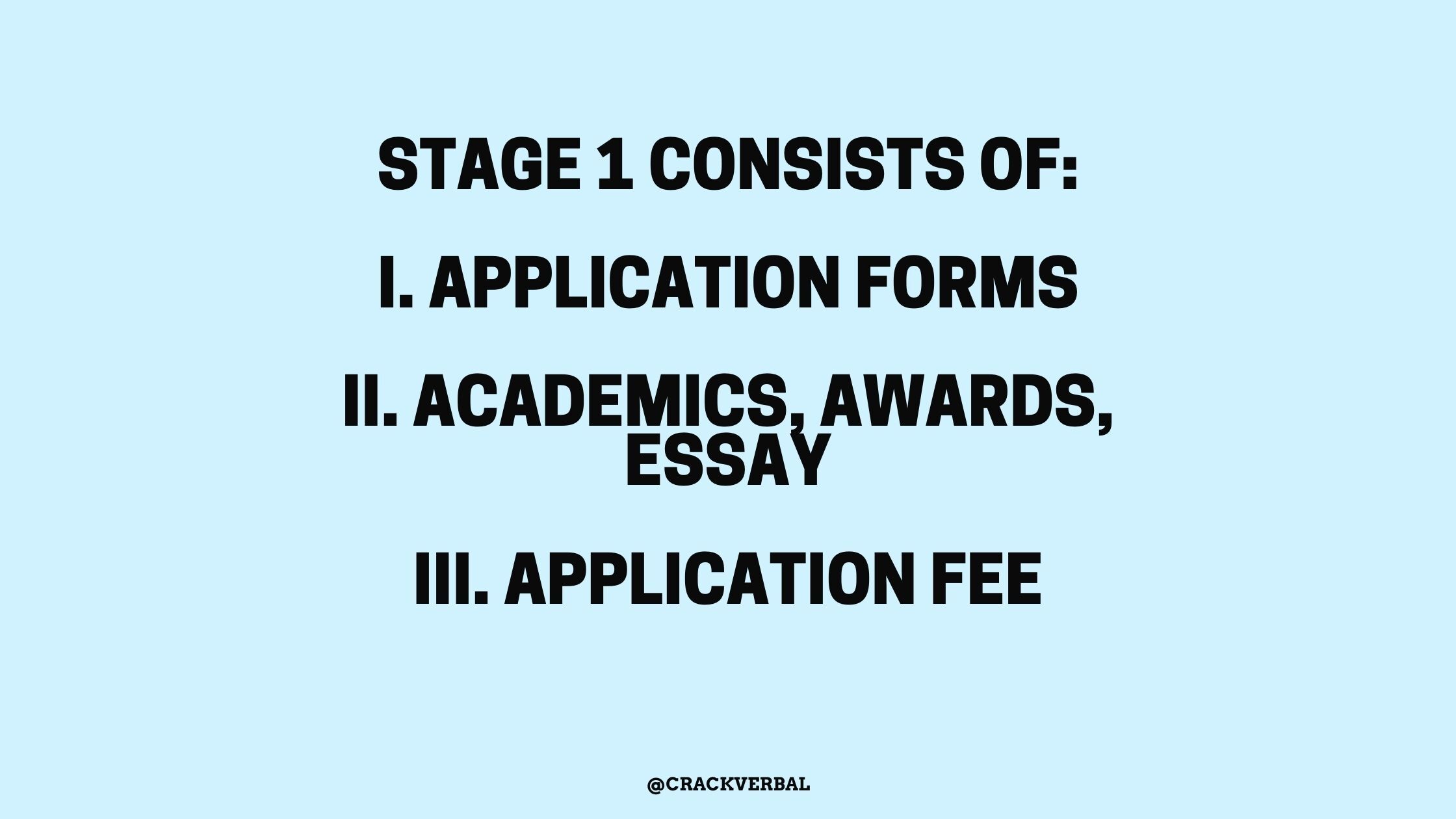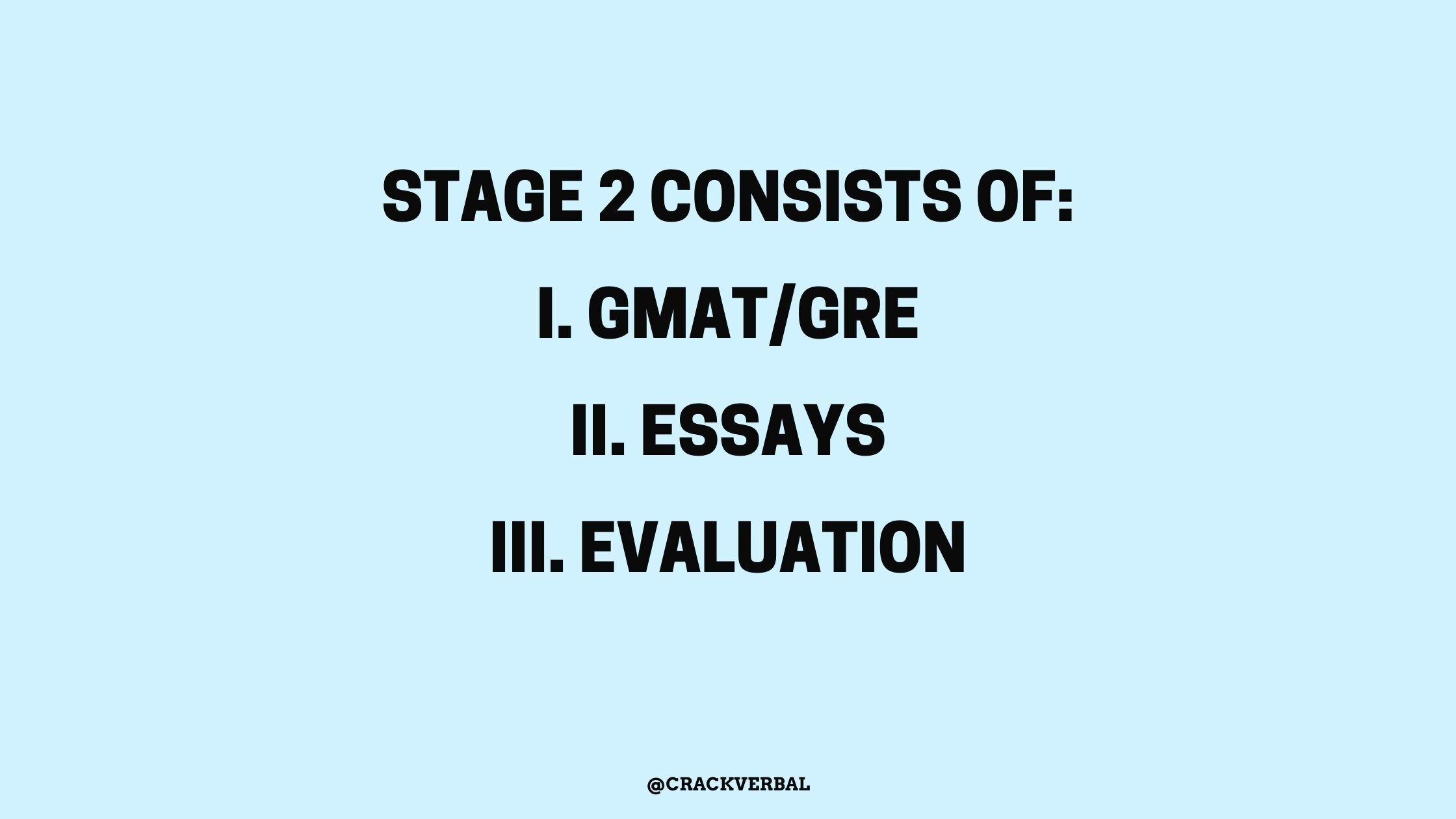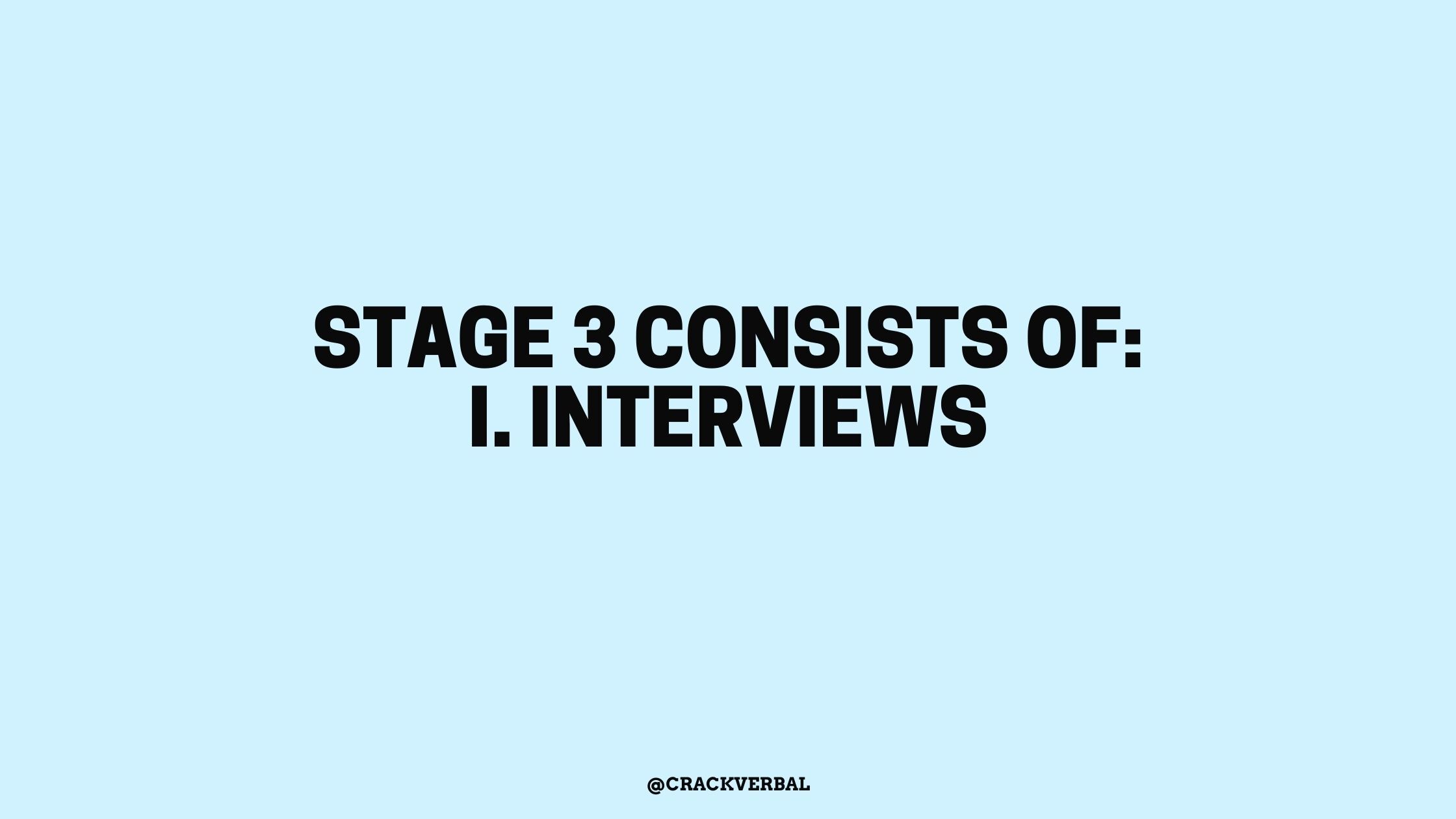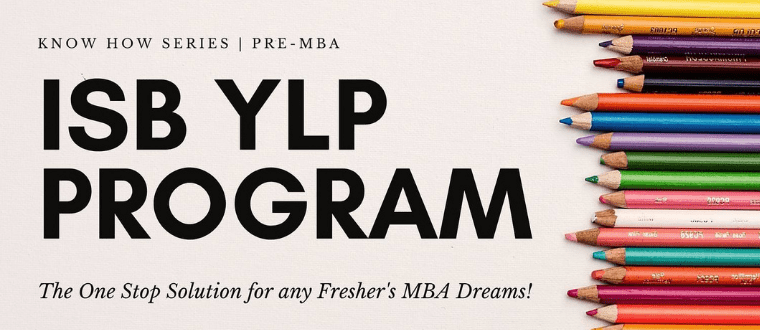Do you know what the ISB Young Leaders Program is? The ISB YLP or Young Leaders Program is a unique MBA program in India for pre-final or final-year students to secure a seat in ISB’s Postgraduate Programme in Management.
Isn’t that exciting? Now that we have your attention, it is time to spill the beans. This blog on the ISB’s YLP is based on our interaction with Amit Tyagi, ISB Program Lead for Admissions.
Stay with us as we dive into everything you’ll need to know about the ISB YLP. This blog will help you understand:
1. Early Advantage – The ISB YLP
2. Eleven Months’ Journey – The Admission Process
About the Expert
Amit Tyagi is the Program Lead for Admissions for the PGP in Management at the Indian School of Business. He also leads the Digital Marketing and Branding team. Amit has over 14 years of experience across marketing, sales, and admissions in the Indian education sector.
1. Early Advantage – The ISB YLP
The ISB YLP is a foundational program that allows college students in the pre-final or final year to secure a seat at ISB’s PGP program. The selected students will have to complete 20 months of mandatory work experience. Once the candidate’s deferment period is complete, they can join the Indian School of Business PGP program.
The candidates also need to attend learning weekends at ISB to understand the B-school culture and environment. So, what is the advantage?
This is more like an early entry option that helps college students to secure an admit into one of India’s top B-schools before they gain any work experience.
The program also allows students to become future leaders by equipping them with multi-disciplinary perspectives, thinking skills, and research tools. This will help them achieve their career goals efficiently.
Are you wondering how ISB can give a candidate the perspective to achieve their career goals?
To understand this, we need to know the different types of students and how the ISB YLP can help them.
i. The MBA oriented: Those who have already decided to pursue an MBA and have clarity on their post-MBA goals. They want to either pursue an MBA immediately after graduation or after gaining a few years of experience.
For such students, the ISB YLP will help them build their profile and skillsets for their post-MBA careers at the Indian School of Business.
ii. The undecided: Those students who are not sure about an MBA. They may choose to pursue an MBA or another program after working for a few years.
Also read: Top 40 Reasons to Do an MBA!
But as they start working, these undecided students will have to balance their work-life with GMAT preparation, fill out applications, write essays, and prepare for B-school admission interviews.
This is quite stressful, but if a student has already enrolled in the ISB YLP, they can always join ISB and pursue an MBA. And if any student wishes to withdraw their admission, they will get their deposit back.
iii. The budding entrepreneurs: Those students who wish to be entrepreneurs must realize that it is a gamble to leave behind the job security of campus placements.
What will happen if the start-up idea of the student fails? They will lose out on opportunities to enhance their skills.
Here is where the ISB YLP offers an advantage; these students will have the YLP as their second option. If their entrepreneurial venture fails, they can always join the YLP to understand business fundamentals and enhance their skillset and network.
iv. The passionate: There is another category of students who wish to pursue their passion- theatre, teaching, working at an NGO. With the ISB YLP, students can utilize their 20 months to gain experience or certification in their chosen area.
Once the 20 months are over, they can join the YLP and continue on their career path along with their passion. Students can utilize the YLP’s flexibility to use their time and gain a deeper understanding of themselves, their passion, and their career.
Also read: A Definitive Guide to Post MBA Career Paths
We have now seen how the ISB YLP will be helpful to different categories of students. We shall now see the three steps included in the YLP that students have to follow once they receive admission into the program.
The three steps to ISB YLP are:
1. Getting 20 months of work experience: Applicants can utilize these 20 months to follow their passion, gain a real-world understanding of their favored sector, work on their profile and build a network.
2. Participating in learning weekends: Amit highlighted that in the 20 months that a YLP graduate gains work experience, they should also attend the ‘learning weekends’ on ISB campuses.
These learning weekends will introduce the students to the ISB faculty members, current students, and alumni and help them understand ISB’s ecosystem.
Kindly note that YLP students must attend three mandatory learning weekends.
3. TriSEP program: The TriSEP program will provide an enriching exposure by taking students to the top three Asian universities offering MBA programs- Tsinghua University, University of Singapore, and Indian School of Business.
Students will spend a week at each of these universities to gain global exposure. Kindly note that students will have to purchase their flight tickets while the lodging and activities will be taken care of by the respective universities.
This program focuses on entrepreneurship and innovation and enriches the student by exposing them to the ecosystem at these universities, where the student will meet various stakeholders, engage in corporate visits, innovation parks, attend meetings and improve their network.
Now that we have discussed the program format for the YLP, let us discuss the admission process and the requirements for YLP.
2. Eleven Months’ Journey – The Admission Process
The admission process into the YLP can be divided into three stages:

The YLP aspirant should be in the pre-final year or final year of their undergraduate or postgraduate courses in terms of eligibility with no work experience at the time of application. Amit also mentioned that there should be no gap year between the UG and PG courses for the postgraduate students.
You can find the application form for the YLP on ISB’s official website. Here is the link for the same.
Aspirants must also submit their academic certificates, extracurricular awards and also write an essay. Once that is done, they need to pay an application fee of ₹ 3000.
After Stage 1, the selected candidates will proceed to Stage 2.

The shortlisted candidates will have to appear for the GMAT or GRE test and share their results by the 31st of August, 2021.
Along with this, candidates will have to write two essays:
– The first essay will have to be about self-awareness.
– The second essay will be about career vision. Here, candidates need to mention their post-MBA goals.
The candidate must also share an evaluation. This is similar to a recommendation letter that other B-schools require and must be shared by a supervisor or teacher.
Also read: Last Minute ISB Tips
Based on the parameters mentioned above, the ISB AdCom will shortlist candidates for the interview round in Stage 3.

In Stage 3 of the ISB YLP application process, ISB alumni will interview the selected candidates. Based on the interview performance and profile, candidates will be sent their ISB YLP offer.
Also read: How to Succeed in MBA Interviews? Here are 5 tips!
Here’s some trivia for you:
One hundred offers would be made to pre-final year students, and 100 offers would be made to final-year students, respectively.
Once a selected candidate receives their ISB YLP admit, they need to deposit a fee of ₹ 1,00,000 + GST in two weeks.
This deposit fee would be adjusted with the tuition fees once the student starts their program. In case a student wishes to join a year later, they can request a deferment by one year. In case a student wishes to withdraw their admission, then the ₹ 1,00,000 + GST will be refunded.
Those candidates who accept the ISB YLP offer will need to start their mandatory 20 months of work experience, attend three learning weekends, and then attend the ISB YLP.
Are you interested in applying to ISB or any other B-school? Check out ISB MBA application services.
Now that the admission process is explained here, we will discuss the PGP program in the upcoming section.
3. Unmatched quality of education – The ISB Edge
Since ISB’s inception in 2001, they have partnered with Kellogg School of Management and Wharton School of Business as founding associate schools. This collaboration has helped ISB build their processes, curriculum, and system. These B-schools also share their faculty members with ISB, which helped establish ISB as a premium B-school in India.
Amit mentioned that research is an essential aspect of any leading B-school. And for the same reason, ISB partnered with London Business School, MIT Sloan School of Management, and The Fletcher School. The three B-schools shared their research expertise with ISB.
To stress the international collaborations, let us list the five B-schools currently associated with the Indian School of Business. They are:
1. Kellogg School of Management
2. Wharton School of Business
3. London Business School
4. MIT Sloan School of Management
5. The Fletcher School
Apart from the B-schools mentioned above, ISB also collaborates with 53+ top B-school associations for teaching, student and teacher exchange, and research collaboration.
Amit mentioned that with ISB’s top collaboration and pursuit of excellence, they had been ranked among one of the best B-schools in the world.
Let us now look at some of the key features that make ISB one of India’s best B-schools.
i. World-class faculty
ISB follows a ‘portfolio model’ of visiting faculty. They have over 200+ teaching staff from the top global school. These faculty members teach at ISB for the complete term bringing world-class education right to ISB’s doorstep.
In terms of the resident faculty, ISB has more than 70 teachers and research faculty across their two campuses in Hyderabad and Mohali.
ii. Diversity quotient
One of the significant experiences at top business schools is what students can learn from their peers. Ranked among the most diverse B-schools in India, ISB follows the ‘case-based learning method’ where people from different walks of life come to teach and learn at ISB. This helps the students broaden their perspective and gain a holistic approach to various real-world challenges.
Even in terms of class diversity, the 2021 batch has students from the following career paths:
· Doctors
· Army officers
· Dancers
· Sportspersons
· Drama and theatre artists
· Fitness enthusiast
· Blogger
· Social activist, to name a few
We will now discuss the network that a student can utilize at the Indian School of Business.
iii. Networking opportunities
Networking is another crucial aspect for any MBA graduate. At the Indian School of Business, a student is exposed to a wealth of alumni spread across various functions worldwide. To understand this vast diaspora, we have listed down some significant numbers.
i. Sex ratio with 27% female
ii. 11500+ alumni across different programs- PGP, PGPMax, PGP MFAB, PGPpro, EFPM, FPM
iii. Over 550+ alumni across CXO and top leadership roles
iv. Over 600+ alumni chose entrepreneurship or extending their family business
v. Prominent industries where ISB students have gained employment are:
– 23% in technology
– 15% in consulting
– 12% in finance
– 8% in eCommerce
– 7% healthcare
iv. Career prospects
In terms of career, the Indian School of Business offers some exciting prospects with:
i. 890 total students received 1504 offers from 432 companies
ii. Lateral roles accepted: 82.94%
iii. Leadership roles accepted: 8.77%
Let us look at the top recruiters who hire from the ISB student pool.

Also read: Top 10 CEOs with an MBA Degree
After discussing the networking and career prospects at the Indian School of Business, let us discuss the two campuses of ISB- Hyderabad and Mohali campus.
4. One School, Two Campuses – ISB’s two campuses
Speaking about their twin campuses in Hyderabad and Mohali, Amit mentions that ISB follows a ‘one school two campuses’ formula to ensure that the learning is consistent across both the B-schools.
For those who may wonder if either campus offers anything extra, Amit clarified that both campuses ensure that students get equal treatment with respect to teaching staff, diversity, and other facilities like recreation and food. He also informed that students would be placed in either of the campuses; they cannot choose it while applying to ISB.
This is relevant across recruitment as well, which means that the recruiters are not aware of whether a candidate is from the Hyderabad or the Mohali campus.
In short, recruitment happens based on the applicant’s credibility alone.
Also read: Comparing ISB Hyderabad & ISB Mohali
The ISB YLP can be the defining moment of your career. This program will help you understand the world of business and administration with ISB’s experienced faculty. What’s more, you can utilize this program to know your peers in advance with the learning weekends and improve your networking skills.
We hope this detailed article on ISB YLP clarifies all your queries and gives you an insight into the YLP. We also hope that the critical parameters that Amit mentioned help you choose the ISB YLP.
If you wish to know more about ISB and how to prepare for their application process or prepare for GMAT in general, you can contact our experts today. We would love to speak to you and help you in your GMAT and MBA journey.
Also read:MBA After Civil Engineering: Here is how Praval achieved his MBA dream!

